Claus Neumann
Nascimento : 1938-08-21, Dresden, Saxony, Germany

Director of Photography

Director of Photography
To gain lands from the prince of Saxony, a group of orphans seeks Mozart, in order to obtain the very rare score of one of his compositions.

Director of Photography

Director of Photography
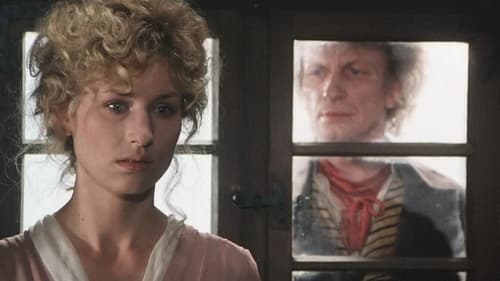
Director of Photography
The time is the French Revolution; the place is the village of Travers, ensconsed in neutral Switzerland. Prussian aesthete Herman Beyer is on the verge of divorcing wife Corinna Harfouch. Radical writer Uwe Kokisch, Corinna's lover, hopes to find a way of smoothing out animosities. What follows, however, is a nonstop drinking binge. The film subliminally addresses the then-prevalent issue of a divided Germany. Whether or not it succeeds is unimportant; Treffen in Travers (Reunion in Travers) has proven to be a crowd pleaser wherever it has been shown.

Director of Photography

Director of Photography

Director of Photography
A teenager is found murdered, and the examining doctor recognizes her son's knife. The film works its way back to reveal how this situation came about; a rare treatment of the taboo subject of youth criminality in Socialist society.

Director of Photography

Director of Photography
Two adolescents, Sauly and Mick, get to know each other while hitchhiking and stick together for the long haul. They both want to reach the ocean, which is some thousand kilometers away. An old car picks them up, but the trip ends shortly thereafter in a sleazy motel. At the bar, a man named Landolfi approaches them. He explains to Sauly that he must have sold his guardian angel to a man by the name of Miller in the city of Prince. Though the boys do not believe in guardian angels, Sauly slowly succumbs to his own fears. He would like to have his guardian angel back again. On their trip, Sauly becomes sick. Mick works on a farm to pay the doctor's bills. Once Sauly is well, they travel farther - until they reach Prince. In this mysterious city, all of the people are named Miller, and once Sauly and Mick finally are at the ocean, they meet Landolfi once more.

Cinematography
A communist is released from prison in 1935 Hamburg. He tries to link up with the Party again, but is unsure as to who he can trust, and has difficulty adjusting to life in Nazi Germany.
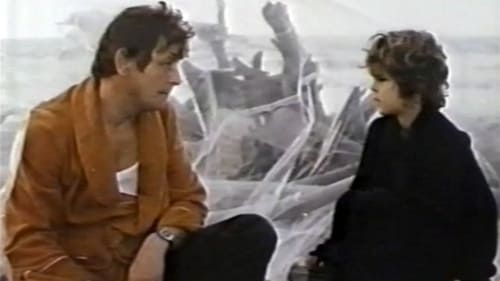
Cinematography
Nine years old Flori must deal with a lot of problems after his father leaves the family.

Cinematography
The fun-loving, 26-year-old architect Franziska Linkerhand (Simone Frost) works for a famous professor. Yet, she feels restrained by her dependence on him and longs to take risks. When her marriage falls apart, she moves to a small town for a fresh start. Franziska approaches her new life with vigor and idealism. Many of her colleagues have given in to the dictates of economic restrictions and prefabricated apartment blocks; but Franziska hangs onto her ideals and, as in her private life, is not willing to compromise…

Cinematography
In a backwater town, opera director Andrej Wischnewsky is supposed to put on a production of Mozart's "Don Giovanni".

Cinematography
When he reaches age 18, Peter is released from the children's home where he grew up, but this does not mean he is truly ready for adult life.

Cinematography
Last years in the Life of german Dramatican Georg Büchner. Around the year 1830 he and his fellow students try to initiate a revolution in Germany, but they are not successful. Büchner has to leave the country and seeks exile in France and Switzerland, where he falls ill with typhus.
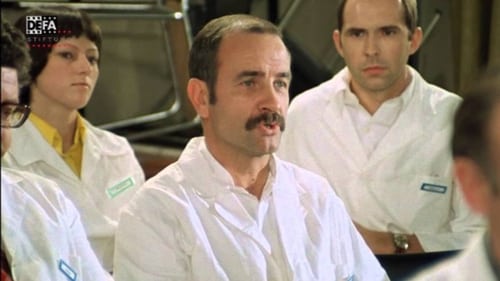
Director of Photography
When Dr. Schmith's proposal for international research on infant mortality is rejected, he decides to leave East Germany and strikes a deal with an escape agency that promises him a leading position at a children's hospital in West Germany. But then the decision is reversed: the project is approved and his international colleagues want Dr. Schmith to head the GDR section. Moreover, he falls in love with his new colleague, Katharina. Schmith initially tries to ignore the arrangements he made with the escape agency, but they blackmail him. Things soon turn deadly...

Director of Photography
At the end of the 19th century, German archaeologist Professor Bohmann is searching for the remains of the legendary island Atlantis. But he is not the only one who is trailing the myth. His adversary, the British scientist Sir Grey claims to have already found Atlantis. In different masks and guises, he sets cunning traps to keep off his adversary from finding Atlantis.

Director of Photography
Europe in 1793. For years, England and France have been at war with each other. Now, France sends three men to the British colony of Jamaica to organize a slave revolt. The envoys are Debuisson, the grandson of a Jamaican rum manufacturer, who knows the island very well, his old friend Sasportas, and the sailor Galloudec. After having established contact with the fragmented rebel groups, they receive the surprising news of Napoleon′s takeover in France. Whereas Debuisson, who by now has gotten used to his role as a rich heir, wants to wait for new instructions from home, his companions are determined to press ahead with the revolt. When a slave kills a British guard, the situation escalates.

Director of Photography
In medieval Germany, poor and witty Till Eulenspiegel fools and cheats citizens, churchmen, and landlords. Although in most cases he uses his wit for personal well-being, he often helps the poor and weak. Eventually, he gains an influential but also dangerous position as royal fool at the court of the emperor.

Cinematography
Eduard and Charlotte live an isolated and idyllic life together. But soon Eduard feels that something is missing and he invites his friend Otto to come stay. Charlotte, meanwhile, decides that her foster daughter Ottilie should come live with them. Complex and passionate relationships between the four people begin. Based on Goethe's novel of the same title.

Cinematography
Uwe Polzin, a highly talented biologist publicly stands the defence of his doctorate and this crucial day prompts him to look back on his life so far. These reminiscences are not altogether positive and he and his family still face almost unsolvable problems. For; while Ruth, Uwe's sister, consciously goes without family life and private happiness in order to devote herself fully to her vocation as a doctor; he tries to reconcile career and family. He has found in Alla, his wife - an interpreter - not only a truly loving partner but also someone who shares his basic view of life. Still, their marriage is undergoing a crisis. Uwe's job has become so demanding that he expects her to cope with a great deal of domestic problems. Alla senses that her husband is exploiting her love towards him and that he expects her only to make sacrifices for him. This is why she is contemplating divorce.

Director of Photography
Young seminary student Franziskus (Benjamin Besson) has been ceremonially ordained. He wants to escape the harshness and injustice of the world and devote himself to the service of God in the quiet seclusion of a monastery. He is also hoping to forget the beautiful lady Aurelie (Jaroslava Schallerová), whose life he saved in a flooded brook and with whom he spent an amorous night. He knows that her father would never allow her to marry him. But the devil dressed in a monk's habit and under the name Viktorin (Andrzej Kopiczynski) intervenes in Franziskus's destiny and attempts to lead him astray. To do so he first uses the diabolical elixirs kept at the monastery as a rare relic. When the young monk gets expelled from the monastery, Viktorin prepares another trap with the help of Aurelie's stepmother Euphemie (Milena Dvorská).

Director of Photography
A classic love triangle is transposed onto the lives of three medical students in Leipzig. Udo loves Tini, his friend Tommy’s fiancée. Tini is torn between choosing one man over the other. Meanwhile, Britta has renewed her studies after giving up on acting, and wonders if she has made the right decision.

Director of Photography
After meeting the woman on the train Erwin Retzmann kills her in the forest.

Director of Photography
In his daydreams, 15-year old Otto is a real hero who masters dangerous situations by the dozen. But in reality, the rather imaginative ninth grader has trouble moving up to the next grade. Fortunately, his teacher Nickel notices that Otto does not lack intelligence, but the ability to use his imagination for the requirements of everyday school life. Together with school director Menschke, Nickel tries to change Otto’s attitude. Although this is easier said than done, Otto eventually realizes that he has to try to build his cloud-castles only after school has ended. And his teacher is going to support him in his attempts.

Director of Photography
August 24, 1937: a day in the life of expressionist sculptor and author Ernst Barlach (Fred Düren). Barlach lives in the small town of Güstrow, keeping to himself and wanting to steer clear of politics. On this day he learns that the Nazis have dragged his famous 1927 sculpture The Hovering Angel out of the Güstrow Cathedral. Barlach begins to reflect on his life of “inner emigration” and on his work.

Director of Photography
Hoffi is starting fresh after his release from prison. He travels with his brother to different construction sites in search of Urban, an acquaintance and role model he met during a brief hospital stay. Along the way, Hoffi meets Gila, who sees beyond his past in prison. Despite disapproval from her family, Gila decides to build a relationship and future with Hoffi, but Hoffi initially hesitates at this responsibility. It takes the encouragement of his workers’ brigade for Hoffi to realize his mistake and give his relationship with Gila a chance.

Director of Photography
Film by Ralf Kirsten.
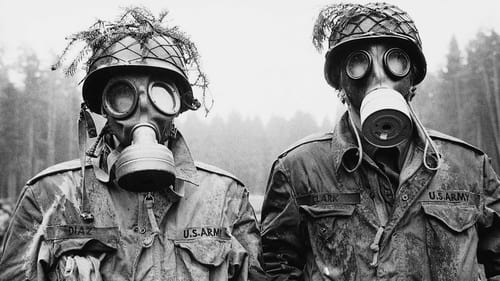
Director of Photography
Uma esquadra americana de quatro homens em patrulha se aproveitam uma jovem vietnamita moribunda e continuam a torturá-la, estuprá-la e matá-la. Um soldado se recusa a participar e relata o incidente.

Director of Photography
A farmer receives land from the king and discovers a buried golden mortar. He decides to give it to the king out of gratitude, but his clever daughter warns him that the king will surely want him to bring a corresponding pestle as well. When the king throws the farmer into jail for fraud, he bemoans the fact that he did not listen to his daughter.

Director of Photography
On one very fine sunny day, a fourth-grader Thomas, as always, is out of the house in the morning to get to school by subway. But on this day he has a too good mood and that, along with the good weather, prevents him get to the lessons. He decides to skip his station, and take a walk through Berlin.

Cinematography
Four directors - four styles - four episodes, all relating the events of a single night which has entered the history books: August 12-13, 1961. There are thousands of complex narratives connected with the frontier drawn through the middle of Berlin, and each episode relates the story of a difficult decision made on that night...
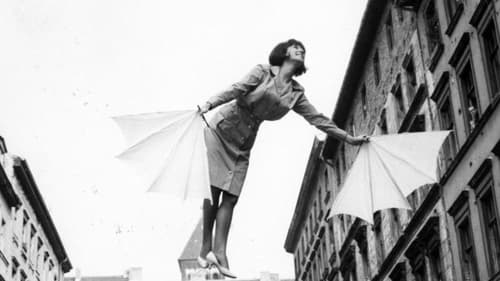
Director of Photography
After the death of their father, 18-year-old Helene Raupe (“coccoon”) and her younger sister Asta come under the guardianship of the youth welfare office in East Berlin. Helene fails miserably as a fishmonger, fashion assistant and bus conductor, all jobs ordained for her by the authorities. The young woman really only “emerges” in her fantasies, where she can escape from her dull, normal life.

Cinematography
Young women made up only five per cent of students at the technical college in Ilmenau. The film devotes itself of this particular situation by conveying impressions of the women's everyday lives.

Director of Photography
In a reception camp for ethnic Germans in Eisenach, the director gets to know the girl Doris S. who went to West Germany and came back. This film interview tells the story of her individual fate in a divided Germany.

Director of Photography
Ibrahim Shaddad’s graduation film Jagdpartie (1964), which he shot at the Deutsche Hochschule für Filmkunst Potsdam-Babelsberg (now: Filmuniversität Babelsberg KONRAD WOLF), is a treatise on racism. Shot in a forest in Brandenburg, it uses a Western look to portray the hunt for a Black man.

Writer
Ibrahim Shaddad’s graduation film Jagdpartie (1964), which he shot at the Deutsche Hochschule für Filmkunst Potsdam-Babelsberg (now: Filmuniversität Babelsberg KONRAD WOLF), is a treatise on racism. Shot in a forest in Brandenburg, it uses a Western look to portray the hunt for a Black man.





























